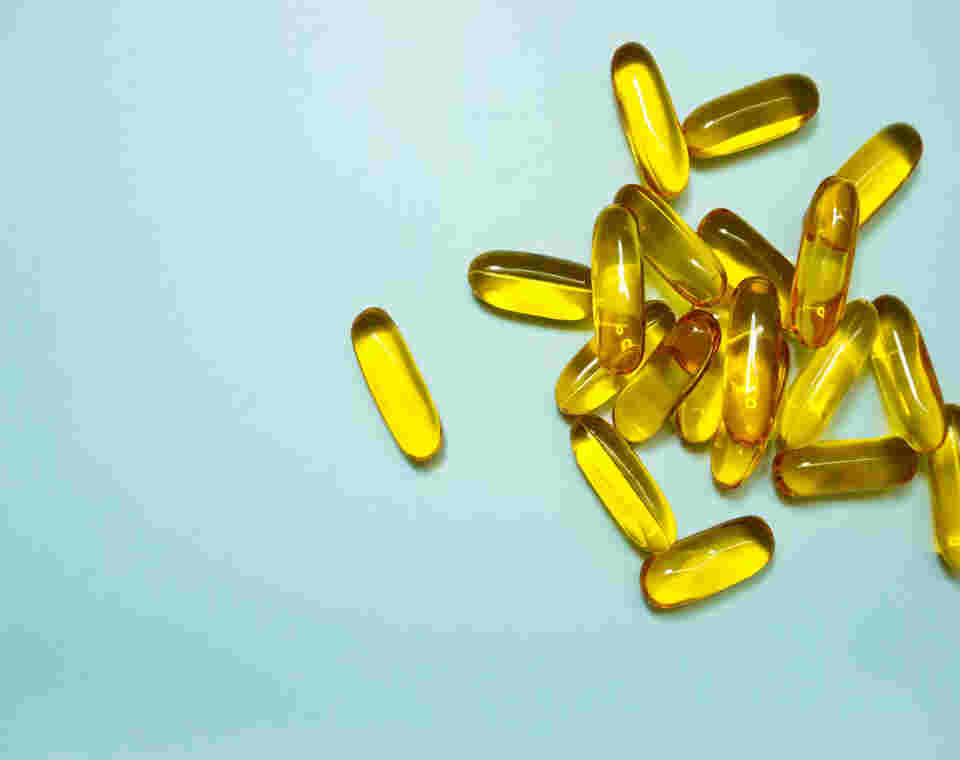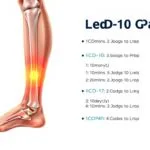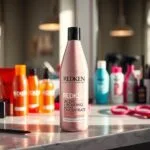
Introduction:
Running is not just about placing one foot in front of the other; it’s a complex interplay of bodily exertion, mental endurance, and dietary help. Among these factors, nutrition stands proud as a cornerstone element that can drastically affect your overall performance, recovery, and typical well-being as a runner.
In this complete manual, we delve deep into the sector of expert-recommended running nutrition supplements for runners, offering insights, recommendations, and practical advice that will help you optimize your training regimen and acquire your jogging dreams with greater efficiency and effectiveness.
1. Significance of Vitamins in Walking:
Walking places huge demands on the body, requiring a regular delivery of electricity, crucial vitamins, and hydration to preserve performance and aid recovery.
Whether you’re tackling a marathon, embarking on a trail run, or hitting the pavement on your day-by-day jog, the food you consume plays a crucial position in fueling your runs, enhancing endurance, and preventing injuries.
Right nutrients are no longer the handiest fuel in your workout routines but also help with muscle repair, immune characteristics, and average health, making it an integral component of your education.
2. Electrolyte Tablets:
Electrolyte capsules are a staple supplement for runners, specifically those who educate in hot and humid situations or interact in prolonged endurance sports.
These drugs include important minerals like sodium, potassium, and magnesium, which play key roles in regulating fluid balance, muscle features, and nerve signaling. via replenishing electrolytes misplaced through sweat, runners can prevent dehydration, muscle cramps, and fatigue, accordingly preserving top-quality performance and decreasing the threat of warmth-associated illnesses.
Experts propose incorporating electrolyte tablets into your hydration method before, at some stage in, and after lengthy runs, with dosage tailored to a man or woman’s desires primarily based on factors that include sweat fee, period of exercising, and environmental conditions.
3. Electricity Gels:
Carbohydrates are the primary gasoline supply for patient athletes, presenting the electricity needed to sustain overall performance through extended exercise.
Electricity gels, regularly formulated with a focused combination of easy and complicated carbohydrates, provide a convenient and problem-digestible way to top off glycogen stores and delay the onset of fatigue for the duration of long-distance runs.
Timing is vital with regards to eating strength gels, with specialists recommending intake each 45-60 minutes at some stage in a workout to maintain strength ranges and save your bonking. utilizing strategically incorporating electric gels into your fueling plan, you can sustain your performance, keep away from hitting the proverbial “wall,” and push via the hardest miles with more ease.

4. Protein Powders:
Protein is crucial for muscle restoration, recovery, and increase, making it a precious nutrient for runners looking to optimize their training consequences. Protein powders, available in various paperwork which include whey, soy, and plant-based total blends, provide a convenient way to increase protein intake and help muscle recovery publish-exercising.
With the aid of offering amino acids, the construction blocks of protein and protein powders promote muscle restoration and synthesis, reducing discomfort and improving normal recuperation between training classes.
Professionals recommend eating a protein shake within half an hour to an hour after exercising to maximize its anabolic results and boost up recovery, particularly after severe or extended runs.
5. BCAA (Branched-Chain Amino Acids):
BCAAs, comprising the vital amino acids leucine, isoleucine, and valine, play essential roles in lowering muscle fatigue, promoting recuperation, and retaining lean muscular tissues all through staying power exercise.
Supplementation with BCAAs earlier than, throughout, or after workout routines can assist limit muscle damage, attenuate fatigue, and improve endurance performance, particularly during prolonged or excessive-intensity schooling classes.
Dosage and timing recommendations may also vary depending on a man or woman’s needs and education desires, with specialists generally recommending a balanced ratio of BCAAs to optimize their advantages and guide overall athletic overall performance.
6. Beta-Alanine:
Beta-alanine is a certainly taking place amino acid that serves as a precursor to carnosine, a dipeptide located in skeletal muscle groups.
Using increased intramuscular carnosine degrees, beta-alanine supplementation helps buffer the buildup of lactic acid in the course of exercise, delaying the onset of muscle fatigue and improving endurance and overall performance.
Studies show that beta-alanine supplementation can decorate excessive-depth exercise capacity, especially at some point in sports lasting 1-four minutes, including sprinting and C programming language education.
Professionals endorse a daily dosage of beta-alanine over numerous weeks to maximize its ergogenic results, with timing aligned with schooling classes for optimum outcomes.
7. Diet D:
Vitamin D, frequently called the “sunshine diet,” is vital in bone health, immune function, and standard well-being. while daylight publicity is the number one source of nutritional D synthesis in the frame, many runners, especially those schooling in interiors or living in areas with restrained sunlight, may take advantage of supplementation to preserve OK levels.
OK Nutrition D popularity is critical for calcium absorption, bone mineralization, and muscle function, reducing the danger of strain fractures, injuries, and immune-related illnesses.
Professionals propose normal sunlight exposure and supplementation with nutritional D3, especially for the duration of the winter months or for people with inadequate solar publicity, to help with bone fitness, immune features, and standard performance as a runner.
8. Omega-3 Fatty Acids:
Omega-three fatty acids, inclusive of EPA (eicosapentaenoic acid) and DHA (docosahexaenoic acid), are polyunsaturated fats with robust and cardioprotective residences.
Observed in fatty fish like salmon, mackerel, and sardines, as well as plant resources like flaxseeds, chia seeds, and walnuts, omega-3s play vital roles in reducing exercising-precipitated inflammation, helping cardiovascular fitness, and enhancing healing from extreme workouts.
Incorporating omega-three-rich foods into your diet or supplementing with fish oil drugs can help reduce muscle pain, enhance joint features, and promote general well-being, as a result optimizing your performance and durability as a runner.
9. Magnesium:
Magnesium is a crucial mineral concerned with over 300 biochemical reactions within the frame, including muscle contraction, electricity metabolism, and electrolyte balance.
As runners use up magnesium through sweat and exertion, preserving adequate levels is critical for preventing muscle cramps, reducing fatigue, and assisting overall performance and healing.
Whilst magnesium is determined in diverse dietary sources such as nuts, seeds, complete grains, and leafy greens, supplementation can be essential for people with multiplied magnesium needs or deficiency danger factors.
Experts endorse magnesium supplementation inside the shape of magnesium glycinate or citrate, which are quite simply absorbed and much less probable to cause gastrointestinal pain compared to other forms like magnesium oxide.
10. Iron:
Iron is an essential mineral used in oxygen delivery, strength metabolism, and pink blood mobile manufacturing, making it critical for staying power athletes, which include runners.
Iron deficiency can lead to fatigue, reduced performance, and impaired restoration, especially in women runners because of menstrual blood loss and multiplied iron requirements.
Periodic assessment of iron status through blood assessments can help discover deficiency and manual supplementation strategies to correct any deficiencies.
Professionals advocate supplementation with ferrous sulfate or ferrous gluconate as needed, below the guidance of a healthcare professional, to restore iron levels and optimize overall performance, mainly for individuals at risk of deficiency or experiencing signs of iron deficiency anemia.
11. Antioxidants:
Antioxidants are compounds that help neutralize unfastened radicals and reduce oxidative strain in the frame, making them crucial for runners looking to support their immune systems and recover quicker from excessive exercise.
Found in colorful fruits and greens, in addition to dietary supplements like diet C and E, antioxidants can help lessen muscle harm, inflammation, and fatigue.
Experts recommend incorporating antioxidant-rich foods into your weight-reduction plan day by day and considering supplementation for added guidance at some stage in durations of heavy education or opposition.

12. Environmental Sustainability and Alum Alternatives
- Assessing Alum’s Environmental Impact: This involves studying how alum affects the environment. Researchers looked at factors like how they’re mined, processed, and used, and how these activities may impact ecosystems, water quality, and air pollution.
- Exploring Sustainable Alternatives to Alum: Scientists are searching for other substances or methods that can do the same job as alum but in a more environmentally friendly way. This could mean finding natural alternatives or developing new technologies that have less of a negative impact on the environment.
- Advantages and Challenges of Transitioning Away from Alum: This looks at the pros and cons of moving away from using alum. While transitioning to alternatives might reduce environmental harm, it could also present challenges such as cost, effectiveness, and resistance from industries accustomed to using alum.
13. Alum in Art and Craftsmanship
- Historical and Contemporary Alum Use in Art: Artists have been using alums for centuries in various artistic practices. This section explores how alum has been used historically in art and how artists today continue to incorporate it into their work.
- Unique Alum Properties in Artistic Mediums: Alum possesses unique properties that make it valuable in artistic mediums like painting, sculpture, and photography. This section highlights how artists leverage these properties to achieve desired effects in their creations.
- Alum Innovations in Creative Industries: In recent years, there have been innovations in how alum is used in creative industries. This could include new techniques, applications, or technologies that artists and craftsmen are experimenting with to push the boundaries of their craft.
- Alum’s Educational Significance in Chemistry: Alum is an important compound studied in chemistry education. This section explores its significance as a teaching tool for understanding chemical properties, reactions, and industrial processes.
- Research Opportunities and Discoveries with Alum: There are ongoing research efforts to further understand alum’s properties and potential applications. This includes studying its behavior in different environments, discovering new uses, and improving existing technologies.
- Academia-Industry Collaboration in Alum Research: Collaboration between academic researchers and industry professionals is essential for advancing alum research. This section looks at how partnerships between academia and industry can drive innovation, solve real-world problems, and translate research findings into practical applications.
Conclusion:
Finally, the right nutrition is paramount for maximizing walking performance and achieving your health goals. by incorporating expert-endorsed dietary supplements like electrolyte tablets, electrical gels, protein powders, and BCAAs into your schooling regimen, you can decorate persistence, accelerate healing, and decrease the risk of accidents.
However, it is crucial to keep in mind that supplementation has to complement a properly balanced food regimen and education program, and consultation with a healthcare expert is suggested before beginning any new complementary regimen.
With the right combination of nutrition, education, and supplementation, you can release your full capability as a runner and revel in a healthier, greater pleasant athletic journey.
FAQ’s
Q1: What are vitamins and dietary supplements, and why are they vital for runners?
A1: nutrition supplements are merchandise designed to supplement the diet and provide important nutrients that may be missing or insufficient in one’s everyday intake.
For runners, supplements can help optimize performance, support recuperation, and save you nutrient deficiencies that may increase due to increased physical hobbies.
Q2: Are nutrition supplements vital for all runners, or are they best for elite athletes?
A2: while nutrition supplements can advantage runners of all levels, they are no longer always obligatory for each character. factors such as nutritional behavior, training depth, and precise nutritional needs can have an impact on the choice to incorporate dietary supplements into one’s regimen.
Consulting with a healthcare expert or registered dietitian can help you decide whether or not supplementation is appropriate for your dreams and instances.
Q3: How do I know which dietary supplements are right for me as a runner?
A3: the choice of dietary supplements relies upon various factors, including your educational desires, nutritional options, and individual needs.
Electrolyte drugs, energy gels, protein powders, and BCAAs are commonplace supplements for runners, however, it’s crucial to assess your particular necessities and seek advice from an informed expert earlier than beginning any new complement routine.
Q.4: What is a great time to take nutrient supplements?
A4: The timing of supplement consumption can vary depending on the kind of supplement and your education timetable.
For example, electrolyte capsules can be taken before, throughout, or after long runs to maintain hydration and electrolyte stability, while protein powders are typically eaten up during exercise to aid muscle restoration.
Consulting with a nutritionist or sports dietitian can help create a customized supplement agenda based on your individual needs and dreams.
Q5: Are there any capacity dangers or aspect outcomes related to taking vitamin supplements?
A5: While many vitamin supplements are commonly taken into consideration safely when used as directed, it is critical to be aware of potential risks and facet results.
Certain dietary supplements may also have interacted with medicinal drugs, exacerbated existing health conditions, or motivated gastrointestinal soreness in a few individuals.
It is important to observe dosage hints, choose authentic brands, and consult with a healthcare professional before beginning any new complement routine, in particularly when you have underlying clinical situations or issues.
Q6: Can i get all of the vital nutrients from food on my own, or do I need supplements?
A6: Whilst a balanced weight-reduction plan rich in Whole Foods needs to preferably offer most of the vitamins your frame needs, there are times when supplementation may be beneficial or essential.
For example, endurance athletes like runners can also have multiplied nutrient requirements because of better electricity expenditure and nutrient losses through sweat.
In such instances, supplements can help bridge the space and ensure good enough consumption of important nutrients crucial for performance and recovery.
Q7: How do I pick out vitamins and dietary supplements?
A: While deciding on dietary supplements, it is essential to prioritize satisfaction, protection, and efficacy. Look for respectable manufacturers that adhere to strict production standards and third-party testing to ensure product purity and potency.
Moreover, do not forget factors inclusive of ingredient transparency, certifications (e.g., NSF certified for recreation), and customer opinions to make informed choices.
Consulting with a healthcare expert or registered dietitian can also offer treasured guidance in deciding on supplements tailor-made to your precise wishes and goals.
Q8: Are there any herbal options to nutrition dietary supplements that I cannot forget?
A8: at the same time as supplements can be convenient and beneficial for some runners, there are also natural alternatives that may help meet your dietary wishes.
Whole meals including fruits, vegetables, lean proteins, complete grains, and wholesome fat are rich in important nutrients and phytochemicals that can aid your schooling and recuperation.
Moreover, optimizing your weight loss plan and hydration method, getting adequate rest and healing, and managing strain can all contribute to stepped-forward performance and ordinary well-being without the need for supplementation.





